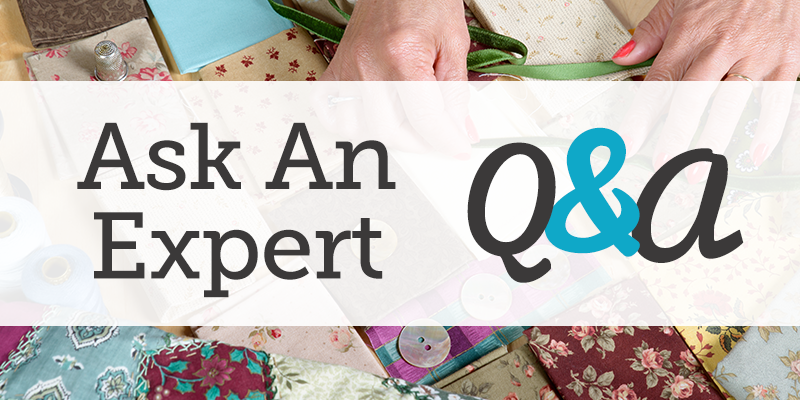Submitted via email
It’s always best to avoid storing quilting supplies in plastic containers if you can as they can accumulate moisture and cause molding and thread damage over time. Not good. I personally find that open containers, shelves, or even hangers in the closet are an effective way to store fabric. As for thread, I prefer open-air shelving too. There are lots of gadgets available in craft shops for this sort of thing. You could even try to get your hands on a thread display rack if your local shop has any they’re not using.
And it’s always good to be aware of light sources in your quilting room and to try to avoid as much direct sunlight or light exposure as possible. I personally avoid florescent lighting in my quilt room, and you could also keep your materials and storage devices in a closet or other space that doesn’t get much light.
Check out this article series for more storage ideas:Hope this helps! KellyOrganizing Your Sewing Room Part 1: Thread & Bobbins Organizing Your Sewing Room Part 2: Fabric Organizing Your Sewing Room Part 3: Quilting Tools Organizing Your Sewing Room Part 4: Kits & Projects


In the beginning of this article you say NOT to store fabric and supplies in plastic bins. In the segment on fabric the author says you CAN/Should store fabric, quilt squares, etc. in plastic containers. Which is correct?
I have an old gun cabinet with glass doors I use this to stack bolts of fabric and take storage boxes lined with manilla folders which I store fabric scraps according to color.
I have stored yds and yds of fabric in Rubbermaid totes for years and never had a problem with moisture...but, you could always use a moisture absorber product...
Hi June, You also will want your machine to have a needle down position and feed dogs that can be lowered. A knee lift bar is also handy when quilting. Good luck.
The link to storing threads and bobbins isn't working. It sends me to Part 4 instead.
Wish the comments were more relevant to the topic. I appreciate the info on storing fabric. I inherited fabric from both grandmothers (who were quilters) and had stored it all in cardboard boxes under my machine since I have limited space in my little sewing area. I recently bought some totes to transfer it all into thinking it would be easier to find what I was looking for but after reading this article I'm rethinking my decision. Is cardboard better than nothing?
June has good advice. Plus-go to all the dealers of the brands you're interested in and play with the machines, be sure they have free classes on how to use the machine you buy, and talk to your sewing friends or even go to a Quilt Guild meeting and talk to those wonderful ladies to find the best one for you.
I know [ am going to enjoy quitting again
I'm thinking of purchasing a new sewing machine to help with my quilting projects. I have a 2yr old Singer Stylist 9100 sewing machine which is pretty standard and has 200+ embroidery stitches and I'm contemplating a machine with a bigger throat area so I can progress to quilting my own patchwork tops which I think I will find rewarding. A friend suggested I consider a Pfaff grand quilter as this is a sturdy commercial machine which has a large throat and only does straight stitching so,there is no double up on embroidery stitches which adds to the cost. I have struggled to find much information on this machine and in my research have found the Pfaff Expression 4.2, Juki TL98P Janome 1600P Brother Dream Weaver VQ3000 and Hasqvana Viking Mega Quilter. I'm now totally confused and wondered if anyone can offer their thoughts/advice on what might be the best machine to go for. My must haves are: good free motion stitching, free motion foot that allows good visabiity of the work, a good needle threader or needle that is easy to thread, top and bottom thread cutter, good straight stitching capabilities, stitch length regulator, auto or easy tension control, good lighting. Or am I asking too much?